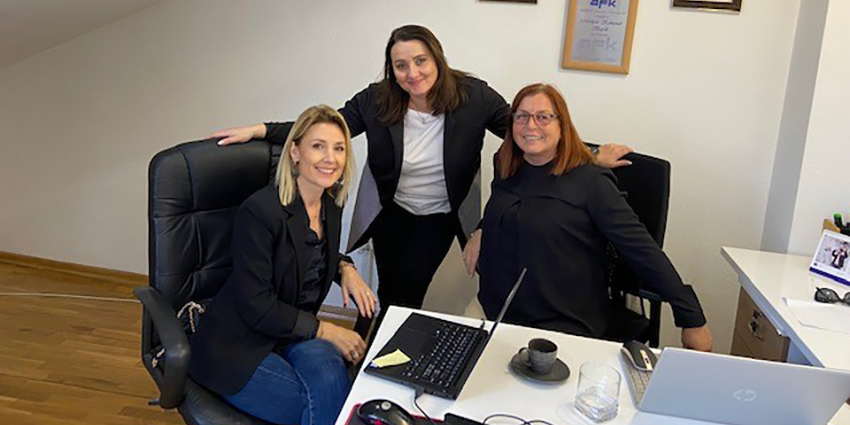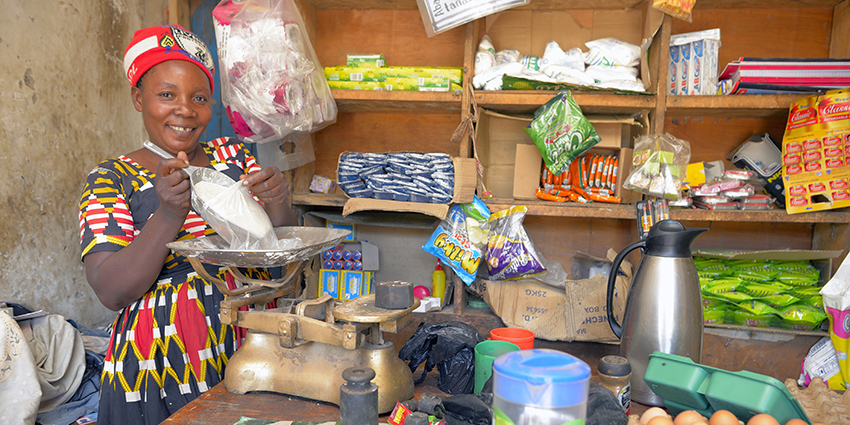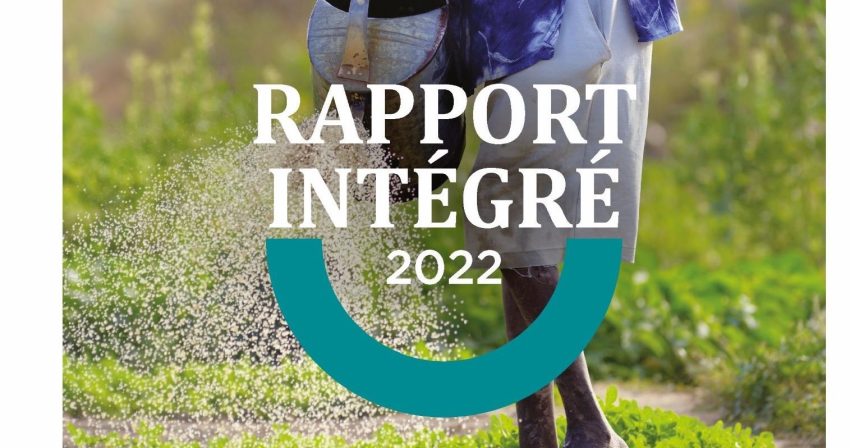Solidarity Notebooks: A Solidarity Banker in Kosovo

Launched by the Grameen Crédit Agricole Foundation and Crédit Agricole SA in 2018, Solidarity Bankers is a skills-based volunteer program open to all Crédit Agricole Group employees, in France and internationally, for microfinance institutions and impact businesses supported by the Foundation. Discover the testimony of Stéphanie Thibesard, Solidarity Banker at CACEIS Bank, Luxembourg Branch, who went to Kosovo for a risk management mission with the AFK microfinance institution.
What prompted you to apply for a Solidarity Banker mission?
I knew about the Grameen Crédit Agricole Foundation but not the Solidarity Bankers program it offers to Crédit Agricole Group employees. I discovered it when a podcast by a solidarity banker, Andreas Brunner, was broadcast, sharing his own experience. I admit I completely recognized myself in what he described. So I consulted the Foundation's "catalogue" to see the different missions offered. The mission at AFK in Kosovo, corresponding to my activities at CACEIS Bank Luxembourg Branch, seemed obvious to me! And this, for several reasons: it allowed me to discover a sector of activity that was unfamiliar to me (microfinance), to share my knowledge, experiences and skills (help and contribution to the improvement of a system), it offered me a unique human experience (acting for others but also with others), it represented a new personal challenge and it was a unique opportunity to get out of my comfort zone!
To what extent is this mission relevant and enriching for your work within CACEIS?
As part of this technical assistance mission on behalf of AFK, we worked on setting up an operational risk map, which was previously non-existent within the MFI. This gave me the opportunity to share my knowledge on operational risks and more specifically on the mapping of these risks, to then work on a template adapted to the institution's activities, both simple and functional, but above all effective (which can be enriched during subsequent reviews and according to AFK's needs). This exercise allowed me to refocus on the essentials of a map, namely identifying the major risks linked to an activity in order to be able to remedy them through action plans. I realized that by sometimes wanting to enrich or expand it too much (both in indicators and in granularity), the map sometimes tends to lose in terms of readability.
What does this opportunity mean to you on a personal level?
Above all, this opportunity represents an incredible human experience! In Kosovo, and particularly in the AFK teams, I met very welcoming people, available but also transparent in their communication (important for the smooth running of the mission). The exchanges were truly constructive and very enriching. I also discovered a culture: the recent history of this country and its reconstruction, a way of life and customs, a sense of hospitality, a geographical and economic environment... During this immersion, I was also able to observe a real capacity for resilience among the Kosovars. I think that one necessarily comes back different from this kind of mission.
Would you be interested in new technical assistance missions on behalf of the Grameen Crédit Agricole Foundation?
Without a doubt! If a new mission of this type were to arise again, I would apply! However, I believe that such an experience should be shared by as many people as possible. I can therefore only encourage the group's employees to embark on a Solidarity Banker mission.
__________________________________________


